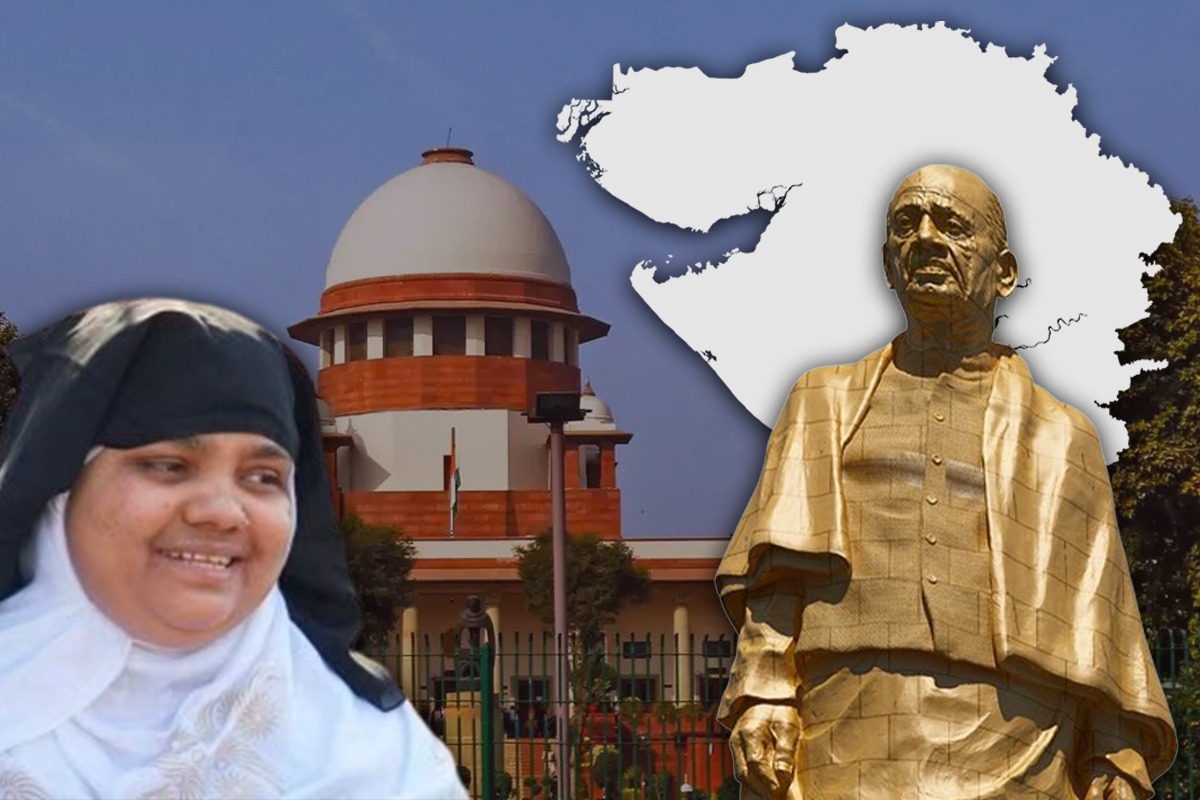

Celebrating the release of convicted rapists and murderers is not just a matter of legal debate but a reflection of societal values.

In a landmark decision, the Supreme Court of India has rendered its verdict in the Bilkis Bano case, a crucial moment for justice, women’s rights, and the fight against communal biases. The case, rooted in the tragic events of the 2002 Gujarat riots, symbolizes a victory for the right to life, dignity, and justice for women in the country.
Bilkis Bano, a survivor of the heinous gang rape during the communal riots, sought justice against the remission granted to the 11 convicts involved in the murder of her daughter and other family members. The Gujarat government’s decision to release these convicts on August 15, 2022, sparked widespread concerns and catalyzed a legal battle that has now reached its pivotal moment.
The Supreme Court’s involvement, from questioning the fundamental right of convicts to seek remission to examining the broader aspects of reform and reintegration into society, reflects a deep introspection into the principles of justice and humanity. The court’s decision to reserve the verdict on October 12 and its subsequent directive for the submission of original records by the Centre and the Gujarat government demonstrated a commitment to a thorough examination of the case.
The heart of the matter lies in the granting of remission by the Gujarat government, a move challenged by Bilkis Bano through her petition. The Supreme Court’s stern reminder that state governments should not selectively exercise their powers in granting remission echoes the importance of a uniform and unbiased legal system. This principle becomes paramount when dealing with cases that involve heinous crimes, such as gang rape and murder, where justice must not only be done but must also be seen to be done.

Celebrating the release of convicted rapists and murderers is not just a matter of legal debate but a reflection of societal values. The fundamental premise is that a crime as heinous as rape or murder does not lose its gravity based on the communal or caste identity of the perpetrator or the victim. The unequivocal assertion that “a rape is a rape; a murder, a murder” echoes the universal truth that the severity of a crime should not be diluted by extraneous factors.
The Bilkis Bano case forces society to confront uncomfortable truths and question its collective conscience. It underscores the urgent need for a legal system that transcends communal and caste biases, ensuring that justice is blind and impartial. The Supreme Court’s ruling, therefore, emerges not only as a victory for Bilkis Bano but as a triumph for the larger cause of women’s rights, dignity, and justice in India.